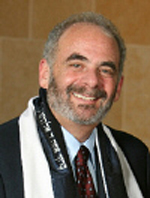Britain vows to vote against all resolutions presented under UNHRC’s ‘Item 7’

The American Jewish Committee (AJC) praised the United Kingdom decision to vote against all resolutions under the United Nations Human Rights Council’s notorious agenda item 7, which deals exclusively with Israel.
“Britain’s decision, the first European country to take this principled step, is itself a condemnation of the ingrained bias against Israel at the UN Human Rights Council,” said AJC CEO David Harris. “As U.S. Ambassador Nikki Haley pointed out last year, ‘no other country – not Iran, not Syria, not North Korea – has an agenda item devoted solely to it. Agenda Item 7 is not directed at anything Israel does. It is directed at the very existence of Israel.’”
British Foreign Secretary Jeremy Hunt, explaining his country’s decision in an op-ed in the JC, the leading British Jewish newspaper, wrote that “it is an unhelpful illusion to suppose that Israel’s conduct deserves special scrutiny” as is done in this “dedicated place on the HRC agenda, known as Item 7.”
“Two years ago, the United Kingdom said that unless the situation changed, we would vote against all texts proposed under Item 7,” Hunt wrote in the JC. “Sadly, our concerns have not been heeded. So I have decided that we will do exactly what we said: Britain will now oppose every Item 7 resolution.”
The Human Rights Council has issued far more condemnations of Israel, the only liberal democracy in the Middle East, than of any of the other 192 UN member states. AJC has long advocated for Council members to abolish agenda Item 7.
Harris encouraged all countries serving on the Human Rights Council to “end the routine, baseless condemnations of Israel and to vote against all resolutions listed under agenda item 7, while also being alert to any attempt to shift the same biased resolutions to other agenda items and seek to pass them by avoiding #7.”
AJC has been involved with the UN since the founding conference, in San Francisco, in 1945. Historians credit AJC leaders with having successfully advocated for the inclusion of human rights protections in the UN Charter.
AJC President Judge Joseph M. “Proskauer made the most eloquent and convincing argument that I have ever listened to in my life,” said Columbia University Professor James T. Shotwell, who was at the UN founding conference. Following the AJC presentation to the American delegation, “Secretary of State Stettinius instantly promised that he would do all he could to have the human rights clauses inserted in the charter” and they then “got into the charter in the fullest possible way.” — From the American Jewish Committee
*
StandWithUs: Terror groups are sponsoring anti-Israel weeks on various U.S. campuses
 StandWithUs strongly condemns systematic efforts to host weeks of hateful anti-Israel events on campuses around the world, taking place from March 18th-April 8th, 2019. It is particularly disturbing that this global campaign is being coordinated by the Palestinian BDS National Committee (BNC) – a coalition which includes Hamas, Islamic Jihad, and other recognized terrorist groups.
StandWithUs strongly condemns systematic efforts to host weeks of hateful anti-Israel events on campuses around the world, taking place from March 18th-April 8th, 2019. It is particularly disturbing that this global campaign is being coordinated by the Palestinian BDS National Committee (BNC) – a coalition which includes Hamas, Islamic Jihad, and other recognized terrorist groups.“There is nothing just or peaceful about this campaign of hate against Israel,” said Roz Rothstein, CEO of StandWithUs. “A committee that includes racist terrorist groups responsible for murdering children and families has no place helping to organize events on college campuses. We urge universities to strongly condemn anti-Israel hate weeks and the dangerous group behind them.” — From StandWithUs
*
Rabbi Michael Berk to deliver a valedictory address April 17

Rabbi Michael Berk, retiring after 12 years as senior rabbi of Congregation Beth Israel, will review his nearly four decades since ordination in a speech at 6:30 p.m., Wednesday, April 17, titled “Reflections of a Retiring Rabbi: What I Have Learned.’
The Beth Israel Men’s Club will host the valedictory address at a buffet dinner, open to men and women of the entire community, at the temple located at 9001 Towne Centre Drive. Cost is $18 for those who RSVP via this website, and $20 for walk ins.
Rabbi Berk earned a bachelor’s degree in political science from UC Berkeley in 175, a master’s degree in Hebrew letters from Hebrew Union College in 1978, and was ordained in 1980 at the Hebrew Union College and Jewish Institute of Religion in Cincinnati.
After ordination, he served as a rabbi educator, assistant rabbi, and associate rabbi at Temple Emanu El in San Jose, rabbi at Beth Sholom Temple in Santa Monica, rabbi at Temple Beth Torah in Ventura, and a regional director of the Pacific Central West Council for the Union for Reform Judaism. His tenure as senior rabbi at Beth Israel began in 2007. — From Congregation Beth Israel
*
Jewish illustrators will be the theme of this year’s Jewish American Heritage Month
 Jewish American Heritage Month (JAHM), a national commemoration of the contributions that Americans Jews have made to the fabric of our nation’s history, culture, and society, is pleased to announce the theme for the May 2019 celebration: American Jewish Illustrators. First established by presidential proclamation in 2006 and renewed every year since, JAHM encourages people of all backgrounds to learn about and draw inspiration from the more than 360-year history of Jewish life in this country.
Jewish American Heritage Month (JAHM), a national commemoration of the contributions that Americans Jews have made to the fabric of our nation’s history, culture, and society, is pleased to announce the theme for the May 2019 celebration: American Jewish Illustrators. First established by presidential proclamation in 2006 and renewed every year since, JAHM encourages people of all backgrounds to learn about and draw inspiration from the more than 360-year history of Jewish life in this country.
“The stories of American Jews are woven into the rich history of this diverse nation,” says Ivy Barsky, CEO and Gwen Goodman Director of the National Museum of American Jewish History (NMAJH), the lead sponsor of JAHM. “By celebrating JAHM, we honor the values of inclusion, acceptance, and religious pluralism cherished by this country.
“JAHM’s 2019 theme provides an opportunity to highlight the many American Jews who have helped create the nation’s beloved children’s books, iconic graphic novels and their superheroes, and syndicated comics and illustrations. These Jewish artists, illustrators, and writers have been shaped by American life, society, and culture, and in turn enriched America’s imaginative landscape. Through the prism of their Jewish identity, and often by approaching their work through the lens of social justice, they have been able to make poignant observations about the world around them, offering powerful commentary on issues of the day through their unique and universal medium.”
From Ezra Jack Keats who grew up as the child of Jewish immigrants in Depression-era Brooklyn, to contemporary writer/illustrator Maira Kalman who examined (and illustrated) the American democracy she saw around the country, these keen and witty social observers reflect us and our world in lasting ways.
Award-winning author and illustrator Ezra Jack Keats (1916 – 1983), whose children’s books include Whistle for Willie, Peter’s Chair, and The Snowy Day, was the son Eastern European Jewish immigrants and very poor. Growing up in East New York, Keats’ experience of anti-Semitism and poverty in his youth gave him a lifelong sympathy for others who suffered prejudice and want. His work transcends the personal and reflects the universal concerns of children. The Snowy Day featured the first African American protagonist in a full color picture book. The Snowy Day and the Art of Ezra Jack Keats was on view at NMAJH in 2013. The exhibition was organized by The Jewish Museum, New York, from the collection of the de Grummond Children’s Literature Collection, The University of Southern Mississippi. Bernard Waber (1921 – 2013) brought us stories such as A Lion Named Shirley Williamson, Ira Sleeps Over, Do You See a Mouse?, and Courage, which explore children’s issues while his fables and satires crafted deceptively simple tales that reward readers with their nutshell wisdom. Like Keats, he was the son of Eastern European immigrants. Waber grew up in an observant Jewish home and considered Jewishness central to his identity. Lyle Lyle, Crocodile and Friends: The Art of Bernard Waber was on view at NMAJH in 2015. This exhibition was organized by The Eric Carle Museum of Picture Book Art, Amherst, Massachusetts.
Stan Lee (1922 – 2018), though not an illustrator himself, gave the world Spiderman, Incredible Hulk, Iron Man, among other legendary Marvel Comic superheroes. In the DC Comics universe, characters like Superman, created by Jerry Siegel (1914 – 1996) and Joe Shuster (1914 – 1992), has clear Jewish roots, and whose character further developed as WWII unfolded. Rube Goldberg (1883 – 1970), the subject of recent NMAJH special exhibition, The Art of Rube Goldberg, is one of the most influential and prolific cartoon illustrators of the twentieth century who is best known for his whimsical invention drawing cartoons, and also won a Pulitzer Prize for his political cartoon about the Atom Bomb. Roz Chast, The New Yorker cartoonist and author of Can’t We Talk About Something More Pleasant?, Leela Corman, who’s graphic novel Unterzakhn follows the lives of Jewish twin sisters growing up in the tenements of New York City’s Lower East Side, and underground comics movement artist Diana Noomin, best known for her character DiDi Glitz, who addresses transgressive social issues, are just a few of the industry’s leading women today.
Maira Kalman, best known for her exuberant The New Yorker covers and children’s books, is the daughter of Sara Berman, a Jewish immigrant who left her marriage of nearly 40 years and her life in Israel for New York. Opening on April 5, NMAJH will present special exhibition Sara Berman’s Closet. The installation, re-created by Maira and her son Alex Kalman, will feature the Museum’s first-ever public art installation on the Kimmel Plaza, on the corner of 5th and Market Streets in Philadelphia, and an accompanying exhibition with new paintings by Maira.
“Illustrators have the uncanny ability to reflect society in all its messiness and humor in universally appealing ways. Through their art, these artists can provide relevant cultural commentary, and practically in real-time, thanks in great part to the volume of visually based online platforms,” shares Judith Rosenbaum, JAHM Advisory Committee member and Executive Director of the Jewish Women’s Archive. “This year’s JAHM theme offers meaningful, fun, and creative ways for schools, libraries, and community centers to explore with audiences of all ages the ways that American Jews have been influenced by and have contributed to the fabric of American culture. Additionally, the opportunity to emphasize the central role of American Jewish women in this piece of American cultural heritage is especially important and extremely timely.” — From Jewish American Heritage Month
*
Austria’s Chancellor Kurz says Europe should remember how hostile Israel’s neighbors are

Austrian Chancellor Sebastian Kurz delivered a historic address today at an American Jewish Committee (AJC) Transatlantic Institute (TAI) event, which focused on strengthening EU-Israel relations and Jewish life in Europe.
The standing-room-only audience of nearly 300 included dozens of ambassadors from Europe, the United States, and Israel, lawmakers from the European, Austrian and Belgian Parliaments, Jewish and other faith leaders from across Europe, EU officials, diplomats, media and civil society representatives. AJC President John Shapiro welcomed the audience.
The event is available to watch here.
“As I look at our tomorrow, I feel optimism. In spite of all the challenges, EU-Israel relations and Jewish life in Europe have a bright future,” Kurz told the guests.
This event marked the first time an EU head of government ever devoted an entire speech to these vital issues in Brussels.
Chancellor Kurz highlighted that Israel is not surrounded by peaceful nations, but rather by hostile nations such as Syria, Lebanon, and Iran. He continued, “We must not forget that reality whenever we judge Israel’s actions.”
“Israel is under constant pressure to defend itself and protect its citizens. For those of us who have grown up in peace and stability, in Europe, in the U.S., or other privileged regions, this is easy to forget. And many are too quick to judge.”
Underscoring his commitment to strengthening Jewish life in Europe, Chancellor Kurz pointed out that his government strengthened its legislation to prohibit the symbols of extremist organizations, such as Hamas and Hezbollah.
Additionally, Chancellor Kurz discussed Austria’s current membership in the UN Human Rights Council and outlined its shift in policy, stating, “We do our best to oppose one-sided resolutions and actions against Israel on the European and global level. We have decided to vote against the proposed accountability resolution because it seems to be politically biased against Israel.”
AJC CEO David Harris, who has met with Kurz several times in Vienna, Washington, and Jerusalem, praised his remarks. “Sebastian Kurz, first as Foreign Minister, now as Chancellor, has blazed new trails for Austria, in its reckoning with history and in its recognition that the past must inform the future,” said Harris. “I want to thank the Chancellor for a wonderful speech, a necessary speech. I particularly want to thank him for making abundantly clear that when we speak about anti-Semitism today, we cannot do so without referencing anti-Zionism.” — From American Jewish Committee
*
Preceding items culled from news releases. Please send yours to editor@sdjewishworld.com